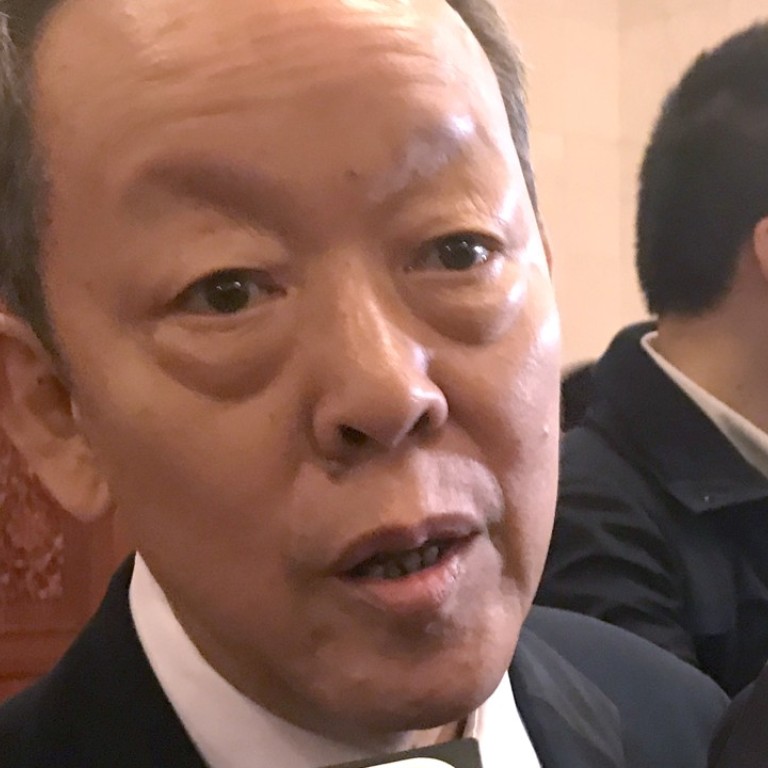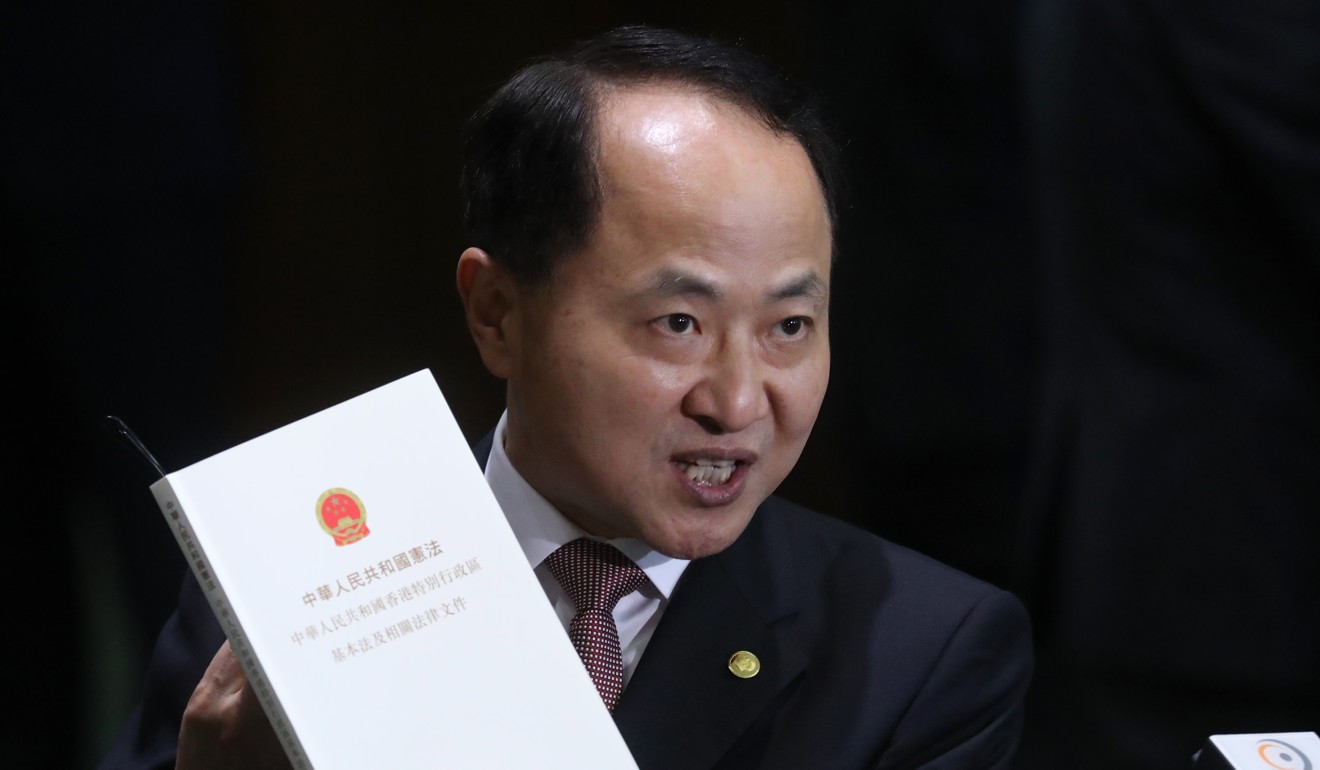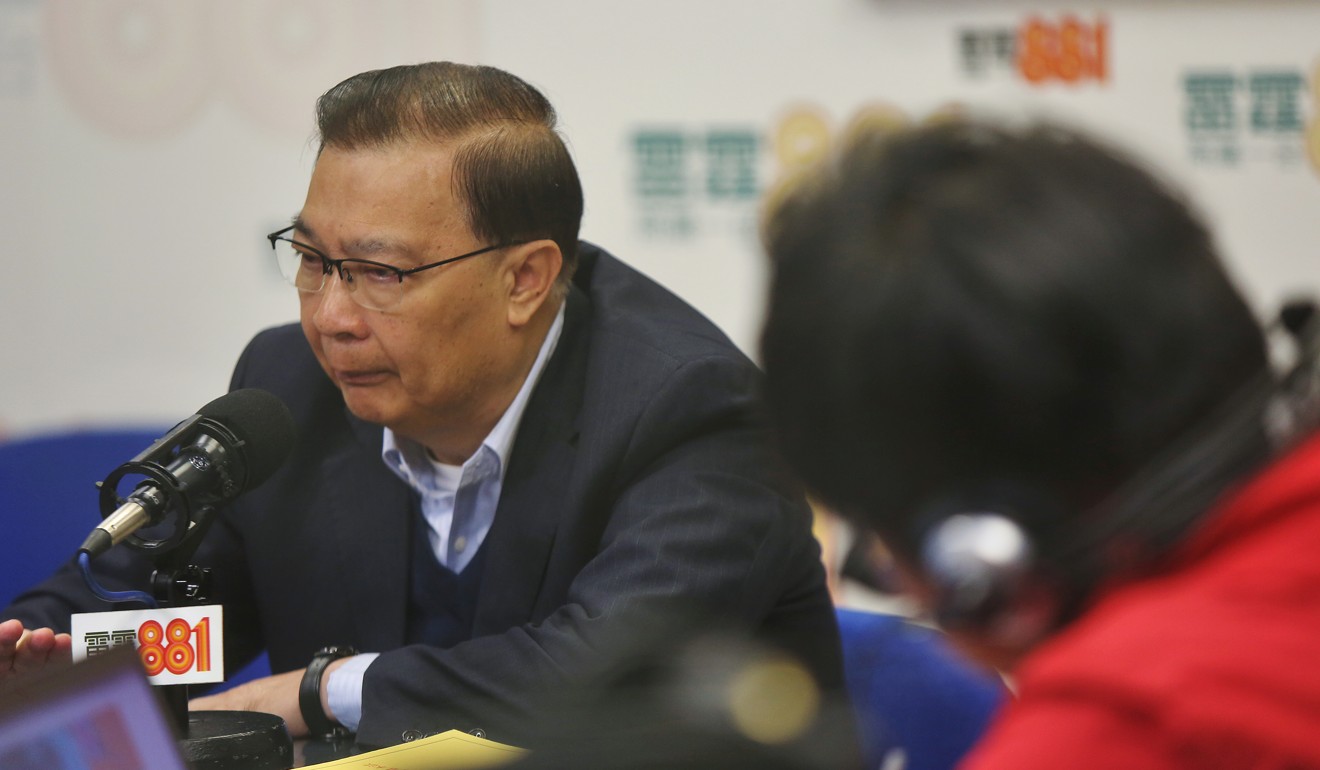
People who chant ‘end one-party dictatorship’ slogan are breaking law and should be banned from seeking political office, says Wang Guangya
Beijing’s former top official in charge of Hong Kong affairs enters heated debate over whether those who call for end of ‘one-party dictatorship’ should be disqualified from elections
“The national constitution stipulates the country is led by the Chinese Communist Party,” Wang Guangya told reporters in the capital, before attending a National People’s Congress (NPC) Standing Committee meeting.

Wang, now a member of the standing committee, was speaking two days after Wang Zhimin, head of Beijing’s liaison office in Hong Kong, said it was “politically unethical” to call for an end to one-party dictatorship yet still want to be a lawmaker and part of the establishment.
Remarks on election ban for those calling for end to ‘one-party dictatorship’ are not official statement, Beijing envoy says
Wang Zhimin said on Monday the slogan was a “false proposition”, as the Chinese constitution stated the country was ruled “under the people’s democratic dictatorship” and a system of “multiparty cooperation and political consultation” led by the Communist Party.
However, Wang added Hong Kong affairs “had nothing to do” with him since he stepped down from the HKMAO.
Shen Chunyao, chairman of the NPC’s Basic Law Committee – a body that advises Beijing on Hong Kong’s mini-constitution – declined to comment.
Hong Kong election disqualification for those who lobby against one-party rule a ‘betrayal’ to city values
Democratic Party chairman Wu Chi-wai said the different remarks given by Beijing officials were part of a Communist Party strategy to leave room for alternative plans to cope with the opposition.
“It is also exerting soft pressure on the Hong Kong government and election officers,” Wu said, referring to their future decisions in confirming candidacies.
Beijing’s man in Hong Kong invites city democrats to his office (and they are very wary)
Wu’s party colleague Lam Cheuk-ting said Beijing would like to exert pressure on all of society, intimidating people so that they stop chanting the slogans.

But he argued: “The constitution does not directly apply to Hong Kong. If it did, the Basic Law could be thrown away.”
Hong Kong should support Communist Party and not cross ‘legal line’ to oppose socialism, Qiao Xiaoyang says
Trade minister Edward Yau Tang-wah said in Jakarta on Wednesday that Wang’s comments were a “defence of the constitutional system from the side of state and government” and should be allowed as “part of the free speech of Hong Kong”.
“On some occasions over the past few years, political tensions did affect the local economy but in the middle and long run, parties of different political stances – including the central government, the Hong Kong government and the business sector – would agree that the ‘one country, two systems’ principle must be defended,” Yau said, referring to the governing principle through which the city, under Beijing’s rule, has certain legal and political freedoms that mainland cities do not have.
The pro-democracy camp – represented by the Civic Party’s Tanya Chan this year – has tabled a motion calling on lawmakers “not to forget the June 4 incident”, as they do every year to mark the Tiananmen Square crackdown of June 4, 1989. The debate will begin on May 9 at the earliest.

